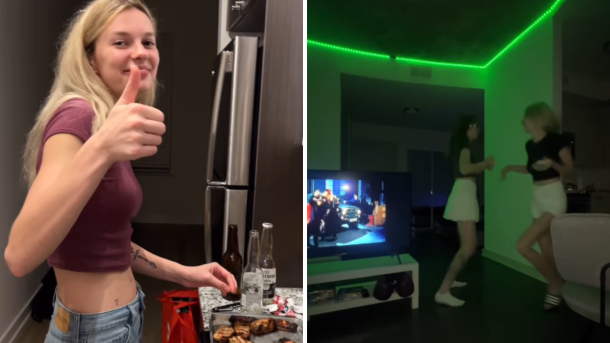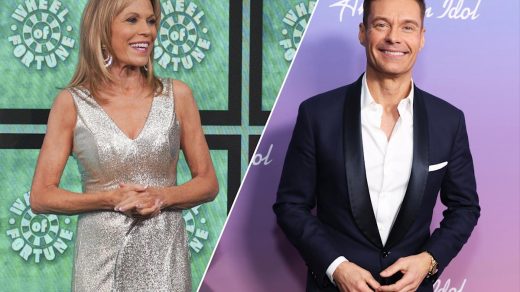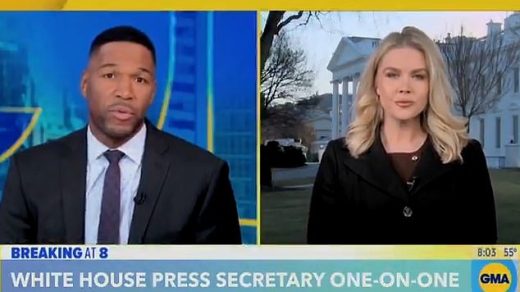In the sun-dappled backyard of a cozy Charlotte duplex, where the scent of blooming crepe myrtles mingled with the sizzle of barbecue and the peal of unrestrained laughter, Iryna Zarutska orchestrated one final symphony of joy on August 21, 2025. It was the kind of day that etches itself into memory like a favorite photograph—carefree, chaotic, and brimming with the unbreakable bonds of friendship. Just 24 hours before a stranger’s blade would shatter her world on a light rail train, the 23-year-old Ukrainian refugee was the undisputed queen of her impromptu house party, flitting from group to group with a bottle of cheap rosé in one hand and a plate of homemade pierogies in the other. “She was our spark,” her best friend, Sofia Kovalenko, shared in an emotional tribute video that has since gone viral, her voice cracking with the weight of what was lost. “That night, Iryna made us feel invincible—like nothing could touch us. If only we’d known…” In a tragedy that has gripped the nation, Sofia’s glimpse into Iryna’s last hours isn’t just a heartbreaking snapshot; it’s a radiant reminder of a life lived fiercely, fully, and with a heart that refused to dim, even in the face of exile and uncertainty.
Iryna Zarutska’s path to that fateful party was a tapestry of triumph over turmoil, a young woman’s unyielding embrace of reinvention after the shadows of war had chased her across continents. Born on May 22, 2002, in the vibrant chaos of Kyiv, Ukraine, Iryna grew up in a modest apartment overlooking the Dnipro River, her world a whirlwind of street markets, folk festivals, and the endless hum of a city that pulsed with possibility. The daughter of mechanic Stanislav Zarutskyi and seamstress Anna Zarutska, she was the eldest of three—big sister to Valeriia (18) and Bohdan (15)—with a spirit as boundless as the Ukrainian steppes. A natural artist, Iryna graduated from Synergy College in 2022 with a degree in Art and Restoration, her canvases alive with swirling abstracts that captured the raw beauty of her homeland: sunflowers defying gray skies, blue-and-yellow ribbons weaving through urban grit. “She saw magic in the mundane,” her uncle Mykola Zarutsky would later say, his eyes misting at the memory. Animals were her quiet muses—stray cats fed from her windowsill, neighborhood dogs trailing her like loyal shadows—and her dreams? To heal the hurt world as a veterinary assistant, blending her love for creatures with her painter’s touch.
But dreams collided with devastation in February 2022, when Russia’s full-scale invasion turned Kyiv’s nights into infernos of sirens and shrapnel. Explosions rattled their building, air raid drills became daily dread, and Iryna’s family—huddled in a basement shelter, flashlights flickering over board games to distract the little ones—faced the unthinkable. Stanislav, drafted into territorial defense at 48, became the family’s reluctant warrior, his wrench-swollen hands now gripping a rifle at checkpoints near Bucha’s ruins. “Go,” he commanded one smoke-choked morning, pressing passports into Anna’s trembling fingers. “I’ll hold here. Live for us.” With hearts heavier than their duffels, Anna, Iryna, Valeriia, and Bohdan boarded an evacuation train westward, the screech of rails a sorrowful serenade to the life they left. Stanislav’s goodbye was a fierce hug, his whisper—”My dove, fly free”—a talisman against the tears.
America answered their call for sanctuary, and Charlotte, North Carolina—the Queen City with its Southern drawl and sky-high ambitions—welcomed them like a long-lost kin. Sponsored by the Ukrainian Orthodox Church of the Holy Trinity in Huntersville, the family touched down in August 2022, settling into a sunlit duplex in Plaza Midwood where the walls soon bloomed with Iryna’s sketches: defiant sunflowers, imagined American skylines in blue and yellow. Anna stitched scrubs for Atrium Health; the siblings dove into ESL at the International House, their accents melting like spring snow. But Iryna? She ignited. On her first legal workday in 2023, she landed a gig at the Silver Arts Senior Center, charming elders with her gentle animal care—brushing Bingo the therapy dog’s golden fur, coaxing smiles from arthritic hands with her napkin doodles. “She’d draw their grandkids from blurry photos, make ’em weep happy tears,” a coworker gushed. By spring 2024, she traded walkers for whisks at Zepeddie’s Pizzeria in NoDa, her dough-tossing a ballet, her laughter the soundtrack to late-night rushes. Enrolled at Rowan-Cabarrus Community College, she juggled art classes with vet tech dreams, her Instagram a gallery of triumphs: “From Kyiv chaos to Charlotte calm—grateful for every slice 🇺🇦❤️🇺🇸.”
It was in this adopted home that Iryna wove her web of wonders, friendships as vibrant as her palettes. Sofia Kovalenko, 24, a fellow Ukrainian refugee and barista at a NoDa coffee shop, became her soul sister within weeks of their church meet-cute. Bonded over shared borscht recipes and homesick hymns, they were inseparable: thrift-shopping sprees in Plaza Midwood, impromptu picnics at Freedom Park, late-night FaceTimes with Valeriia trading Kyiv gossip. Sofia’s apartment—a quirky walk-up strung with fairy lights and Iryna’s murals—became their haven, a slice of steppe in the suburbs. “She was my mirror, my mischief,” Sofia posted in her tribute, a montage that’s racked up 2 million views. And oh, the adventures: road trips to Asheville’s Blue Ridge trails, where Iryna sketched misty peaks; volunteer shifts at the SPCA, cooing over kittens in tandem; dance-offs to Ukrainian pop in Sofia’s kitchen, twirling till dawn.
That magical last day, August 21, unfolded like a love letter to living—spontaneous, silly, soaked in the simple splendor of sisterhood. It started with a text at noon: Sofia: “Bored. Pierogies?” Iryna: “YES! My place, 4pm. Bring the bad vodka 😂.” By afternoon, the duplex thrummed with energy: Iryna, ponytail high and apron tied, commandeered the kitchen, rolling dough with rhythmic precision while belting Okean Elzy anthems. Sofia arrived with armfuls of mixers—cranberry juice, limes, a questionable bottle of horilka—and the guest list snowballed: three pizzeria pals (including crush-worthy line cook Marco), two college art buddies, Valeriia and Bohdan commandeering the playlist, even Anna popping in with fresh babka. The backyard, a postage stamp of green ringed by chain-link and crepe myrtles, transformed into a pop-up paradise: folding chairs circled a kiddie pool (for “emergency splashes”), a Bluetooth speaker blasting everything from Taylor Swift to Kalush Orchestra, and a grill commandeered by Bohdan for veggie kebabs that charred to perfection.
Sofia’s video captures it in crystalline joy: Iryna, mid-laugh, flipping pierogies with theatrical flair, potato filling flying like confetti; a slow-mo of her cannonball into the pool, splashing Marco who retaliates with a water-gun ambush; group shots around a rickety table, rosé cups raised in a toast—”To dreams that don’t duck bombs!”—Iryna’s eyes sparkling like the Dnipro at dusk. There are board game battles—Monopoly devolving into mock bankruptcies, Iryna’s hotel empire toppling amid giggles; treadmill races in the living room, Iryna outpacing everyone with her endless energy; and tender moments, like her hugging Sofia on the porch swing, whispering about a future bakery—”We’ll call it ‘Zarutska’s Zest,’ with catnip cupcakes for the strays.” As dusk fell, the party mellowed: s’mores over a fire pit (Bohdan’s handiwork), ghost stories that dissolved into howls, Iryna sketching caricatures on napkins—Sofia as a superhero barista, Marco with comically oversized chef’s hat. “She was the glue,” Sofia narrates softly. “That night, we felt unbreakable.”
The evening wound down around midnight, hugs lingering like afterimages, Iryna waving from the porch as cabs pulled away. “Love you, spark,” Sofia called. “See you tomorrow for coffee?” Iryna’s grin: “Promise. Life’s too short not to caffeinate!” She texted her mom goodnight, scrolled job listings for vet gigs, then crashed—exhausted, ecstatic, utterly alive. August 22 dawned ordinary: alarm at 7 a.m., art class sketches till noon, a shift at Zepeddie’s flipping pies till 9 p.m. Exhausted but elated, she boarded the Lynx Blue Line at 7th Street Station, apron dusted with flour, earbuds piping folk tunes, texting Sofia a heart emoji about “epic party hangover vibes.” Four minutes in, at East/West Boulevard, Decarlos Brown Jr., 34, a drifter with 14 priors—robbery, larceny, untreated schizophrenia—rose from his seat, knife flashing in three merciless arcs. Blood arced, Iryna collapsed, the blade left embedded in her neck like a grotesque signature. Marcus Hale, a passenger two rows back, rushed first—pressing his jacket to the wounds, spotting the carved swastika on the hilt that screamed hate crime. Paramedics arrived in eight minutes; she was gone by 10:05 p.m.
The horror unfolded in viral vignettes: CATS footage released September 5, sparking outrage—7 million #JusticeForIryna posts, vigils at every station, sunflowers wilting in tribute. Brown, arrested blocks away, faces first-degree murder and federal mass-transit death charges, his “chip in my brain” delusions no shield against the blade’s legacy. Charlotte’s mayor Vi Lyles decried “court failures,” pledging 50 new transit cops; Trump thundered “soft-on-crime disasters” from the Rose Garden. But amid the fury, Sofia’s tribute cuts deepest—a reel of resilience, 3 million views strong, showing Iryna not as victim, but victor: pool jumps, pierogi flips, hugs that heal.
Her funeral on September 8 at James Funeral Home in Huntersville was a mosaic of mourning and mirth—300 souls in vyshyvankas and jeans, Olena’s eulogy fracturing: “She escaped shells for smiles—now, we carry her light.” Stanislav joined via shaky Zoom from a Kyiv bunker, his “Bring her back” a global gut-punch, Ukraine’s conscription laws barring his flight. GoFundMe swelled to $300,000 for the family, scholarships blooming for refugee artists. Zepeddie’s honors her with “Iryna’s Special”—pierogies on Fridays, proceeds to SPCA. Sofia, voice steady in interviews, vows: “That party? It’s how we’ll remember her—laughing, loving, alive.”
Iryna Zarutska’s last day wasn’t an ending; it was an exclamation—proof that joy defies the dark. From Kyiv’s ruins to Charlotte’s rails, she painted her world bold, leaving us sketches of what it means to seize the sun. As Sofia’s video loops, her laugh a lifeline, one truth endures: in the face of fragility, live like Iryna—fiercely, fully, forever.


